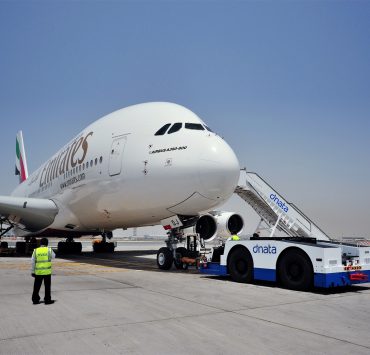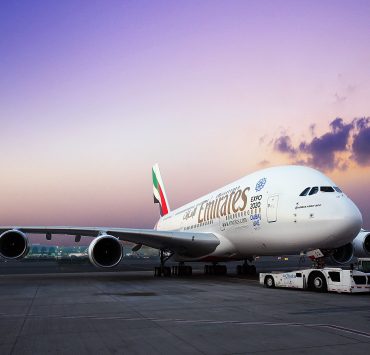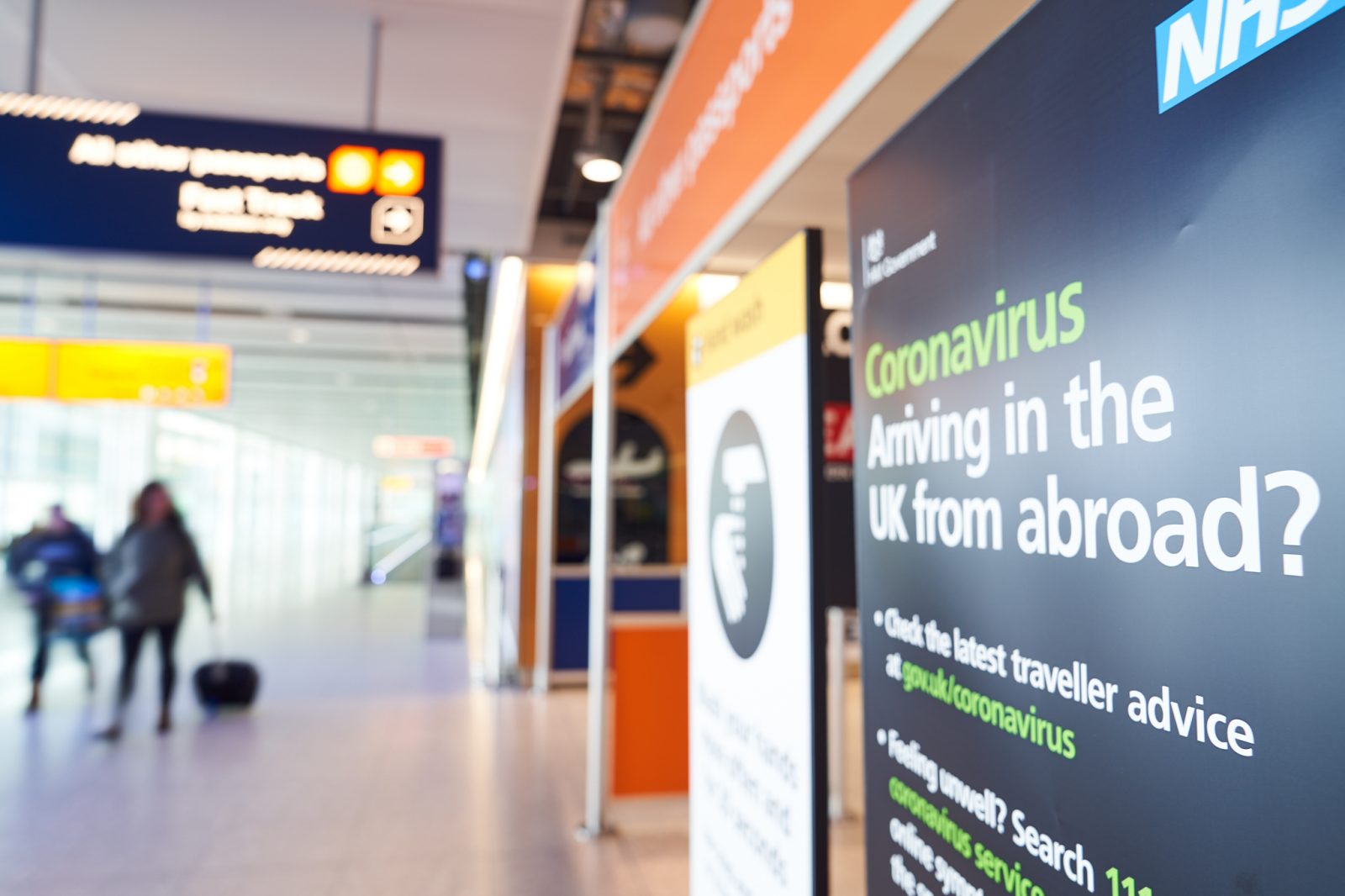
A new study from economic consultancy firm Oxera and Edge Health has surprisingly found that making passengers endure a 14-day home quarantine is the least effective way to prevent the risk of community transmission of COVID-19 from travellers who have arrived from a high-risk country.
The policy, which is meant to be as close to zero-risk as possible, is actually less effective than a single Coronavirus test on arrival – an idea being promoted by the aviation industry but which has been rejected by the UK government because it would still allow positive cases to slip through the net.
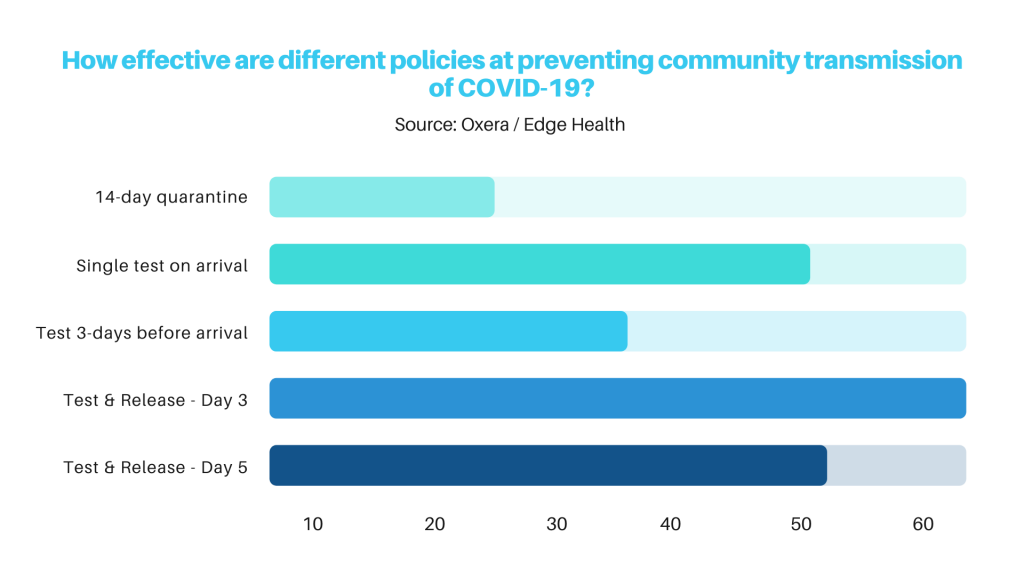
British ministers based their policy on modelling from Public Health England which assumed 100 per cent of people told to self-isolate for 14-days would, in fact, quarantine for the entire period. The new research, however, takes into account real human behaviour based on government findings.
According to the British government’s own scientific advisors, just 71 per cent of symptomatic individuals manage to self-isolate for the full 14-days, while that drops to a mere 28 per cent of asymptomatic individuals. Another study, not backed by the so-called SAGE committee, puts compliance rates for asymptomatic individuals as low as 18 per cent.
When those compliance rates are taken into account, a 14-day quarantine policy for arriving passengers reduces the risk of community transmission of COVID-19 by just 25 per cent. A single test on arrival, rejected outright by British Prime Minister Boris Johnson, however, was projected to be more than twice (51%) as effective in reducing the risk of community transmission.
A so-called ‘Test and Release’ system was found to be most effective when passengers were told to self-isolate for three days before taking a test to release them from quarantine if it came back negative. Such a system reduced the risk of community transmission by as much as 60 per cent. A five day ‘Test and Release’ system would reduce risk by 53 per cent.
Making passengers self-isolate for a week before taking a test, however, could reduce risk by just 45 per cent as non-compliance rates start to increase.
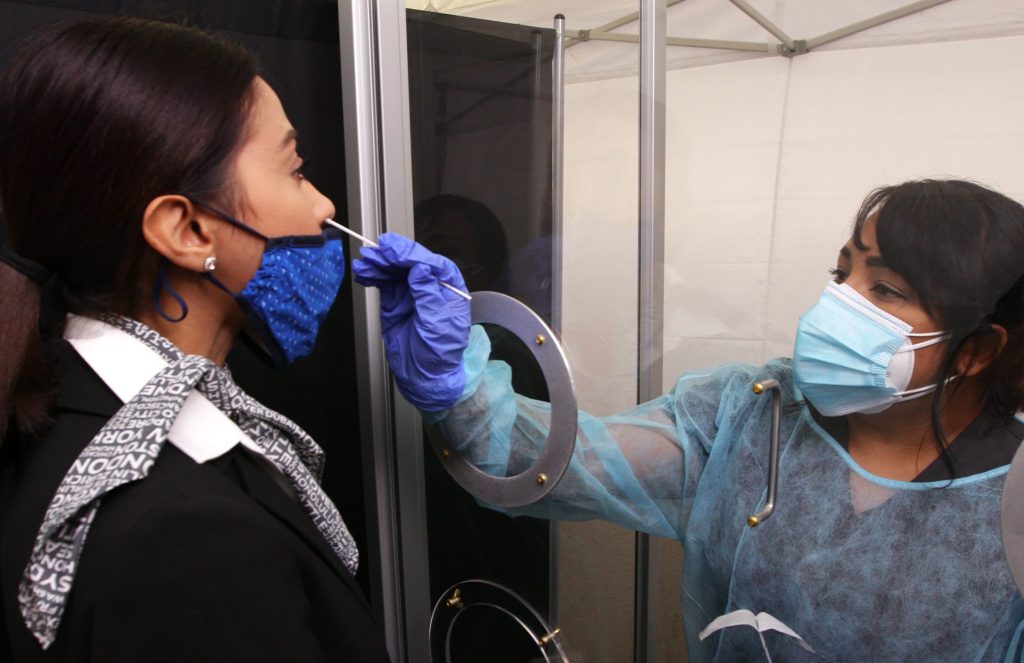
“The current policy of 14-day quarantine is the least effective strategy due to human behaviour, with returning travellers often failing to comply and risking community transmission,” explained George Batchelor, co-founder of Edge Health.
“Our modelling finds a much more effective path in passenger testing, which if it’s applied as a ‘test and release’ regime, performs the best at reducing infectious days after 3 days quarantine. This balances the detectability of Covid-19 and new evidence of quarantine non-compliance,” he continued.
While the International Air Transport Association (IATA) would like to see the industry move towards pre-departure testing to lift travel bans and sweep away quarantine restrictions, Batchelor cautioned that there’s currently a lack of real-world data to do effective modelling.
A number of airlines are currently experimenting with pre-departure testing, including United Airlines and both Lufthansa and Austrian Airlines.
Prime Minister Boris Johnson had previously rejected the idea of testing on arrival, citing figures from Public Health England which concluded it would only catch 7 per cent of cases. The much-derided research was quickly debunked but continues to drive policy decisions from the government.
The latest research also backed the use of rapid Coronavirus tests like RT-LAMP testing despite the fact that they are less sensitive than RT-PCR tests. Not only are they a lot cheaper than ‘gold standard’ tests, but they also return results much quicker – which again could increase compliance with quarantine restrictions.
The report, while independent, was commissioned and paid for by a group of airlines and industry players, including Virgin Atlantic, IAG and Heathrow Airport. Yesterday, the boss of Heathrow blasted the government, saying its current policy was leaving the aviation industry “out in the cold”.
Mateusz Maszczynski honed his skills as an international flight attendant at the most prominent airline in the Middle East and has been flying throughout the COVID-19 pandemic for a well-known European airline. Matt is passionate about the aviation industry and has become an expert in passenger experience and human-centric stories. Always keeping an ear close to the ground, Matt's industry insights, analysis and news coverage is frequently relied upon by some of the biggest names in journalism.







